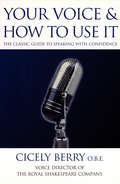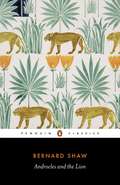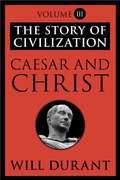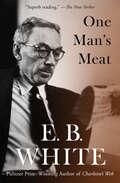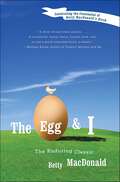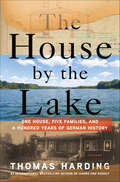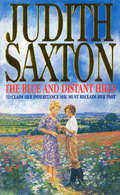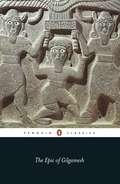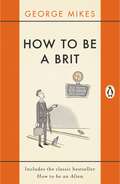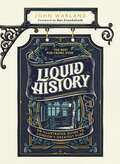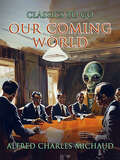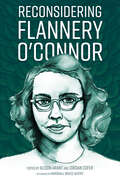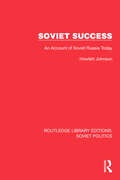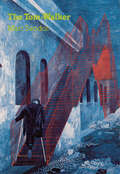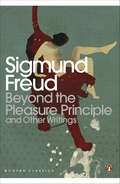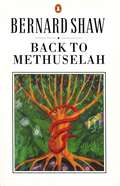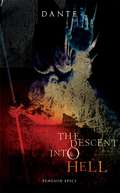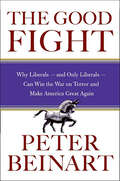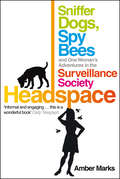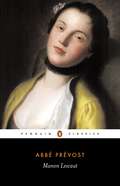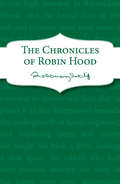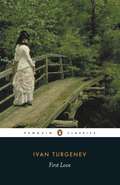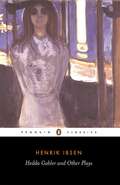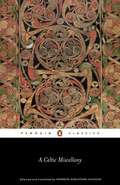- Table View
- List View
Your Voice and How to Use it
by Cicely BerryAnxiety about how we speak prevents many of us from expressing ourselves well. In her classic handbook, Cicely Berry, Voice Director of the Royal Shakespeare Company and world-famous voice teacher, tackles the reasons for this anxiety and explains her practical exercises for relaxation and breathing, clarity of diction and vocal flexibility - everything that you need to achieve good speech.
Androcles and the Lion
by Dan Laurence George Bernard ShawAndrocles and the Lion is a 1912 play written by George Bernard Shaw.Androcles and the Lion is Shaw's retelling of the tale of Androcles, a slave who is saved by the requited mercy of a lion. In the play, Shaw makes Androcles out to be one of many Christians being led to the Colosseum for torture. Characters in the play exemplify several themes and takes on both modern and supposed early Christianity, including cultural clash between Jesus' teachings and traditional Roman values.
Caesar and Christ: The Story of Civilization, Volume III (The Story of Civilization #3)
by Will DurantThe Story of Civilization, Volume III: A history of Roman civilization and of Christianity from their beginnings to A.D. 325. This is the third volume of the classic, Pulitzer Prize-winning series.
One Man's Meat
by E. B. WhiteThe Pulitzer Prize–winning writer and author of Charlotte&’s Web documents his move from Manhattan to a saltwater farm in New England: &“Superb reading.&” —The New Yorker Called &“a mid-20th–century Thoreau&” by Notre Dame Magazine, E. B. White&’s desire to live a simple life caused him to sell half his worldly goods, give up his job writing the New Yorker&’s &“Notes and Comment&” editorial page, and move with his family to a saltwater farm in North Brooklin, Maine. There, White got into the nuts-and-bolts of rural life—not without a lot of self-reflection—and surrounded himself with barnyard characters, some of whom would later appear in Charlotte&’s Web.One Man&’s Meat is White&’s collection of pithy and unpretentious essays on such topics as living with hay fever (&“I understand so well the incomparable itch of eye and nose for which the only relief is to write to the President of the United States&”), World War II (&“I stayed on the barn, steadily laying shingles, all during the days when Mr. Chamberlain, M. Daladier, the Duce, and the Führer were arranging their horse trade&”), and even dog training (&“Being the owner of dachshunds, to me a book on dog discipline becomes a volume of inspired humor&”). Though first published in 1942, this book delivers timeless lessons on the value of living close to nature in our quest for self-discovery. With each subject broached and reflected upon, it &“becomes an ardent and sobering guidebook for those of us trying to live our day-to-day lives now&” (Pif magazine). &“The most succinct, graceful and witty of essayists.&” —San Francisco Examiner and Chronicle &“A lively record of an active inquiring mind.&” —Kirkus Reviews
The Egg & I: The Enduring Classic
by Betty MacDonald“A work of real comic genius. . . . A wonderful, funny, warm, honest book, and, to use a much overused word, a classic.” –Michael Korda, author of Country MattersWhen Betty MacDonald married a marine and moved to a small chicken farm on the Olympic Peninsula in Washington State, she was largely unprepared for the rigors of life in the wild. With no running water, no electricity, a house in need of constant repair, and days that ran from four in the morning to nine at night, the MacDonalds had barely a moment to put their feet up and relax. And then came the children. Yet through every trial and pitfall—through chaos and catastrophe—this indomitable family somehow, mercifully, never lost its sense of humor.A beloved literary treasure for more than half a century, Betty MacDonald's The Egg and I is a heartwarming and uproarious account of adventure and survival on an American frontier.
The House by the Lake: One House, Five Families, and a Hundred Years of German History
by Thomas HardingA Finalist for the Costa Biography AwardLonglisted for the Orwell PrizeNamed a Best Book of the Year byThe Times (London) • New Statesman (London) • Daily Express (London) • Commonweal magazine In the summer of 1993, Thomas Harding traveled to Germany with his grandmother to visit a small house by a lake on the outskirts of Berlin. It had been her “soul place,” she said—a holiday home for her and her family, but also a refuge—until the 1930s, when the Nazis’ rise to power forced them to leave.The trip was his grandmother’s chance to remember her childhood sanctuary as it was. But the house had changed, and when Harding returned once again nearly twenty years later, it was about to be demolished. It now belonged to the government, and as Harding began to inquire about whether the house could be saved, he unearthed secrets that had lain hidden for decades. Slowly he began to piece together the lives of the five families who had lived there: a wealthy landowner, a prosperous Jewish family, a renowned composer, a widow and her children, a Stasi informant. All had made the house their home, and all but one had been forced out.The house had weathered storms, fires and abandonment, witnessed violence, betrayals and murders, and had withstood the trauma of a world war and the dividing of a nation. Breathtaking in scope and intimate in its detail, The House by the Lake is a groundbreaking and revelatory new history of Germany, told over a tumultuous century through the story of a small wooden house.
The Blue And Distant Hills
by Judith SaxtonA young girl's search for her identity and for a love that can overcome her past.Questa Adamson is stranded in Italy for the duration of the Second World War. When she finally returns to England she is haunted by terrible memories. She finds that the safe childhood world she remembers has disappeared and that she is as alone in her home country as she has been in Italy.She also finds that she has inherited a tumbledown manor house in Shropshire and is determined to restore the estate to its former glory, despite rationing and post-war austerity. And when she meets her mysterious neighbor, Marcus, it seems as if she might, at last, begin to drop her guard and learn to love.But loving Marcus brings its own special difficulties and Questa soon finds herself faced with an extraordinary and painful choice.
The Epic of Gilgamesh
by N. K. SandarsGilgamesh, King of Uruk, and his companion Enkidu are the only heroes to have survived from the ancient literature of Babylon, immortalized in this epic poem that dates back to the 3rd millennium BC. Together they journey to the Spring of Youth, defeat the Bull of Heaven and slay the monster Humbaba. When Enkidu dies, Gilgamesh's grief and fear of death are such that they lead him to undertake a quest for eternal life. A timeless tale of morality, tragedy and pure adventure, The Epic of Gilgamesh is a landmark literary exploration of man's search for immortality.
How to be a Brit: The hilariously accurate, witty and indispensable manual for everyone longing to attain True Britishness
by George MikesThe hilariously accurate, witty and indispensable manual for everyone who longs to attain True Britishness'Got me in tears of laughter' 5***** Reader Review'Laugh-out-loud hilarious, witty and insightful' 5***** Reader Review_______Born in Hungary, George Mikes eventually spent more than forty years in the Britain observing behaviours and misbehaviours of local and foreign Brits.With essential chapters such as "How to Avoid Travelling", "On Shopping", "In Praise of Television", "On Not Complaining" and "How to Panic Quietly", you'll get to know Britain like never before. Loved by readers and authors alike, How to Be a Brit contains Mikes's three major works -- How to be an Alien, How to be Inimitable and How to be Decadent.If you're British, you'll love it; if you're a foreigner, you'll appreciate it. Queuing: "An Englishman, even if he is alone, forms an orderly queue of one." How to plan a town: "Street names should be painted clearly and distinctly on large boards. Then hide these boards carefully." Sex: "Continental people have sex lives: the English have hot water bottles."George Mikes's perceptive bestseller provides a complete guide to the British Way of Life._______'Hilarious and informative essays about the British way of life' 5***** Reader Review'So many people have tried to describe the English mentality . . . This book is as near as you can get!' 5***** Reader Review
Liquid History: An Illustrated Guide to London’s Greatest Pubs : A Radio 4 Best Food and Drink Book of the Year
by John WarlandTHE PERFECT GIFT FOR THOSE WHO LOVE LONDON.A RADIO 4 BEST FOOD AND DRINK BOOK OF THE YEAR.An illustrated guide to London's best pubs and their extraordinary history, presented by the founder of the world-famous Liquid History Tours.Pull up a stool for a thirst-quenching trundle through London's liquid history in search of the city's greatest pubs. We raise a toast in Shakespeare's local, pop in for a pint at Jack the Ripper's bar and push open the bloodstained doors of the Bucket of Blood.Liquid History is a beautifully illustrated love letter to London's finest hostelries, written by the city's leading pub tour guide and host of the celebrated Liquid History Tours. Profiling over 50 timeless boozers, this book tells the story of London's history and the taverns that have hosted, harboured and refreshed its leading characters.Exploring the watering holes of London's writers and artists, its most notorious criminals and celebrated figures, we move from architectural marvels to secretive backstreet boozers to join the dots for London's ultimate knees-up.
Edmund Burke Selections
by A.M.D. Hughes Hazlitt ArnoldBurke advocated for aligning virtues with manners and emphasized the role of religious institutions in maintaining moral stability and societal well-being, as detailed in his work "A Vindication of Natural Society" (1756).
Our Coming World
by Alfred Charles MichaudThe story is set in an Utopia set on a Mars whose long-lived inhabitants, benefiting from a healthy socialist regime much in contrast with the terrible state of post-World War Two Earth, kidnap the crew of a B-29 bomber and teach them things it is good to know.
Reconsidering Flannery O'Connor
by Marshall Bruce GentryContributions by Lindsay Alexander, Alison Arant, Alicia Matheny Beeson, Eric Bennett, Gina Caison, Jordan Cofer, Doug Davis, Doreen Fowler, Marshall Bruce Gentry, Bruce Henderson, Monica C. Miller, William Murray, Carol Shloss, Alison Staudinger, and Rachel Watson The National Endowment for the Humanities has funded two Summer Institutes titled "Reconsidering Flannery O’Connor," which invited scholars to rethink approaches to Flannery O’Connor’s work. Drawing largely on research that started as part of the 2014 NEH Institute, this collection shares its title and its mission. Featuring fourteen new essays, Reconsidering Flannery O’Connor disrupts a few commonplace assumptions of O’Connor studies while also circling back to some old questions that are due for new attention. The volume opens with “New Methodologies,” which features theoretical approaches not typically associated with O’Connor’s fiction in order to gain new insights into her work. The second section, “New Contexts,” stretches expectations on literary genre, on popular archetypes in her stories, and on how we should interpret her work. The third section, lovingly called “Strange Bedfellows,” puts O’Connor in dialogue with overlooked or neglected conversation partners, while the final section, “O’Connor’s Legacy,” reconsiders her personal views on creative writing and her wishes regarding the handling of her estate upon death. With these final essays, the collection comes full circle, attesting to the hazards that come from overly relying on O’Connor’s interpretation of her own work but also from ignoring her views and desires. Through these reconsiderations, some of which draw on previously unpublished archival material, the collection attests to and promotes the vitality of scholarship on Flannery O’Connor.
Soviet Success: An Account of Soviet Russia Today (Routledge Library Editions: Soviet Politics)
by Hewlett JohnsonSoviet Success (1947) deals with Soviet Russia after the Second World War. The author met Stalin, Molotov and other leading personalities in Russia, and here records his conversations with them in full detail. The book looks at the destruction caused by the war, and the state of the economy and political life in its aftermath. It also is particularly informative on the family, art, literature and cultural life of Soviet Russia.
The Tom-Walker
by Mari SandozA bold, biting novel by the author of Old Jules and Crazy Horse, The Tom-Walker spans three generations in a Midwestern family. The patriarch, Milt Stone, who lost a leg fighting in Grant's army, is the Tom-Walker, circus slang for man on stilts. After the Civil War he takes his family west to the Missouri country. There he gains a reputation as a raconteur and as a passionate defender of the little man who works hard, fights the wars, and gets squeezed out by powerful interests. He lives to see his son and grandson fight in World War I and World War II, respectively, and return home from those wars, maimed like him, only to have to resume a fight just to stay alive. Crowded with living characters, The Tom-Walker never loses the larger view of American history. From the Gilded Age to the Atomic Age, everybody is "trying to be either a Jay Gould or a Jesse James, out for easy money, everybody [is] wanting to be king of something: mines, railroads, cattle, outlaws, anything." How people like the Stones fare is the story within this story.
Beyond the Pleasure Principle (Penguin Modern Classics)
by Sigmund FreudA collection of some of Freud's most famous essays, including ON THE INTRODUCTION OF NARCISSISM; REMEMBERING, REPEATING AND WORKING THROUGH; BEYOND THE PLEASURE PRINCIPLE; THE EGO AND THE ID and INHIBITION, SYMPTOM AND FEAR.
Back to Methuselah
by George Bernard ShawBack to Methuselah (A Metabiological Pentateuch) is a 1921 series of five plays and a preface by George Bernard Shaw. The five plays are:In the Beginning: B.C. 4004 (In the Garden of Eden); The Gospel of the Brothers Barnabas: Present Day; The Thing Happens: A.D. 2170; Tragedy of an Elderly Gentleman: A.D. 3000; As Far as Thought Can Reach: A.D. 31,920 The plays were published with a preface titled The Infidel Half Century, and first performed in 1922 by the New York Theatre Guild at the Garrick Theatre.
The Descent into Hell
by DanteMany have made the journey. None have ever returned...Wandering through a dark forest, Dante finds himself at the gates to the underworld. Despite his terror, he dares to enter the Circles of Hell, where the damned lie in torment.As he descends deeper, he encounters wild-eyed sinners, sees the three-headed, howling hound Cerberus, and meets a long-dead prophet who foretells Dante's destiny. He passes through realms of fire and ice, and at last reaches the frozen heart of Hell - where the hideous Satan, greatest of all the damned, lies in wait...
The Good Fight: Why Liberals—and Only Liberals—Can Win the War on Terror and Make America Great Again
by Peter BeinartIn this passionate, provocative book, Peter Beinart offers a bold new vision and sounds the call for liberals to revive the spirit that once swept America and inspired the world.
Headspace: Sniffer Dogs, Spy Bees and One Woman's Adventures in the Surveillance Society
by Amber MarksCrime detection has gone to the dogs and squirrels are being busted for espionage. If you've never wondered about the new direction of 'intelligence-led policing' in our society, now is the time to start. It was a chance encounter with a police sniffer-dog that drew criminal lawyer Amber Marks into the hidden world of the science of smell and its law-enforcement applications. Soon she stumbled into a wonderland of contemporary surveillance, where the spying skills of bees, dolphins and a myriad other critters were being harnessed to build a 'secure world' of bio-intelligence. From the businesses, scientists and military departments developing new smell-based surveillance technologies, to good old-fashioned police dogs, Amber discovered a secret world of security forces, where animals and scent are as important as intelligence agents and CCTV.Part polemical exploration of our burgeoning surveillance society, part humorous memoir, this intriguing book will capture your imagination and get you wondering: just who stands to benefit from all this 'security'?
Manon Lescaut
by Abbe PrevostWhen the young Chevalier des Grieux first sets eyes on the exquisitely beautiful and charming Manon Lescaut they fall passionately in love. But his happiness turns to bitter despair when he discovers that Manon is mercenary and immoral, and has taken a rich lover to pay for their life of pleasure. A broken man, he swears to stay away from her, but cannot. Just as the Chevalier is helpless to end their relationship, so Manon is incapable of giving up the source of her income, and the lovers enter a destructive cycle that can only end in tragedy. Manon Lescaut (1731) is a devastating depiction of obsessive love and a haunting portrait of a captivating but dangerous woman.
The Chronicles of Robin Hood
by Rosemary SutcliffA classic tale of adventure and bravery charting the transformation of Robert of Locksley into Robin Hood, the outlaw of myth and legend. Join Robin and his band of Merry Men as they battle injustice and seek to defeat the villainous Sheriff of Nottingham and Guy of Gisborne.
First Love
by Ivan TurgenevWhen the down-at-heel Princess Zasyekin moves next door to the country estate of Vladimir Petrovich's parents, he instantly and overwhelmingly falls in love with his new neighbour's daughter, Zinaida. But the capricious young woman already has many admirers and as she plays her suitors against each other, Vladimir's unrequited youthful passion soon turns to torment and despair - although he remains unaware of his true rival for Zinaida's affections. Set in the world of nineteenth-century Russia's fading aristocracy, Turgenev's story depicts a boy's growth of knowledge and mastery over his own heart as he awakens to the complex nature of adult love.
Hedda Gabler and Other Plays
by Henrik IbsenIn these three unforgettably intense plays, Henrik Ibsen explores the problems of personal and social morality that he perceived in the world around him and, in particular, the complex nature of truth. The Pillars of the Community (1877) depicts a corrupt shipowner’s struggle to hide the sins of his past at the expense of another man’s reputation, while in The Wild Duck (1884) an idealist, believing he must tell the truth at any cost, destroys a family by exposing the lie behind his friend’s marriage. And Hedda Gabler (1890) portrays an unhappily married woman who is unable to break free from the conventional life she has created for herself, with tragic results for the entire family.
A Celtic Miscellany: Selected and Translated by Kenneth Hurlstone Jackson
by Kenneth Hurlstone JacksonIncluding works from Welsh, Irish and Scottish Gaelic, Cornish, Breton and Manx, this Celtic Miscellany offers a rich blend of poetry and prose from the eighth to the nineteenth century, and provides a unique insight into the minds and literature of the Celtic people. It is a literature dominated by a deep sense of wonder, wild inventiveness and a profound sense of the uncanny, in which the natural world and the power of the individual spirit are celebrated with astonishing imaginative force. Skifully arranged by theme, from the hero-tales of Cú Chulainn, Bardic poetry and elegies, to the sensitive and intimate writings of early Celtic Christianity, this anthology provides a fascinating insight into a deeply creative literary tradition.
